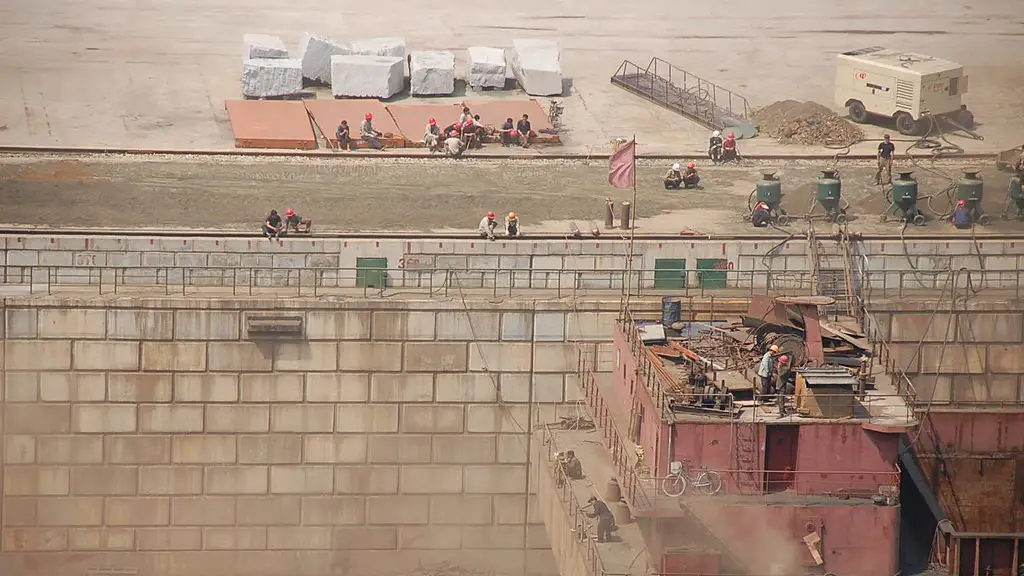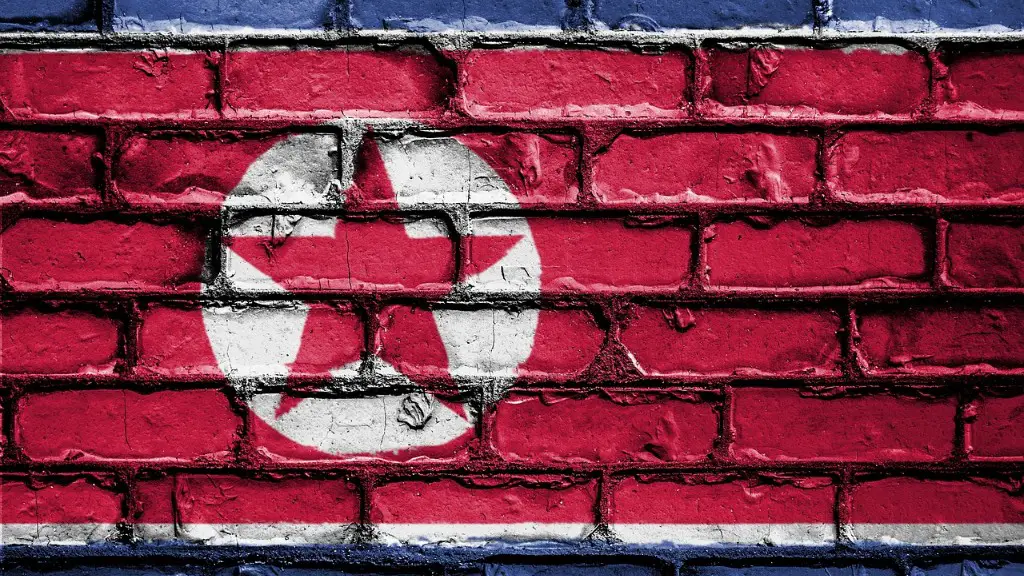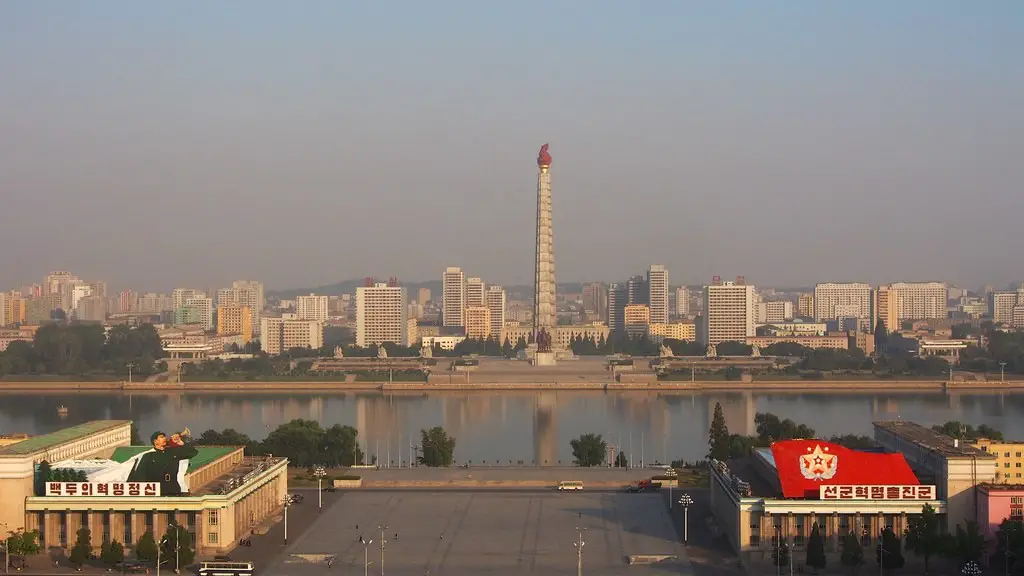Since the Korean War ended in 1953, there has been no formal peace treaty between North and South Korea. The two nations are in a state of “armistice,” meaning a pause in fighting. Technically, they are still at war. The armistice is overseen by the United Nations, and includes a “demilitarized zone,” or DMZ, between the two countries. The DMZ is a 2.5-mile-wide stretch of land that runs 150 miles long.
No one can definitively answer this question since it would involve knowing the intentions of North Korean leader Kim Jong-un, which are impossible to know for certain. However, some experts believe that North Korea is not likely to launch an attack on the United States since it would know that doing so would lead to its destruction. Others believe that North Korea might be more likely to launch a limited attack, such as a missile strike, in an attempt to prove its military strength or to scare the United States into making concessions.
Can North Korea hit the US?
The Hwasong-14 ballistic missile is a North Korean intercontinental ballistic missile that is capable of reaching the US island of Guam, as well as the US city of New York. The missile has a range of 8,000km, but some studies suggest it could travel as far as 10,000km.
In the event of a nuclear attack on US soil, the city that would be most likely to be targeted would most likely be one of the six major cities: New York, Chicago, Houston, Los Angeles, San Francisco, or Washington, DC. However, a public-health expert has stated that any of those cities would struggle to provide emergency services to the wounded. This is due to the fact that nuclear attacks are highly destructive and would overwhelm the resources of even the largest cities.
Is North Korea an enemy of the US
The United States and North Korea have a long history of tension and hostility between them. The two countries do not have diplomatic relations and have been in a state of war since the 1950s. In recent years, the tensions between the two countries have increased, with North Korea conducting nuclear and missile tests and the United States increasing its military presence in the region.
The Democratic People’s Republic of Korea, commonly known as North Korea, has been making headlines lately with its escalating nuclear threats. The small country has been threatening an “unprecedentedly” strong response to the annual US-South Korea military drills, which it views as preparation for an invasion. This has led to increased tension in the region and has many people wondering what North Korea’s next move will be.
How long would it take for a nuke to hit the US?
Maintaining the option of launching weapons on warning of an attack could lead to rushed decision making. In the event of a potential attack, it would take a land-based missile about 30 minutes to fly between Russia and the United States; a submarine-based missile could strike in as little as 10 to 15 minutes after launch. This leaves little time for decision makers to evaluate the situation and make a determination on whether or not to launch a counterattack. Additionally, false alarms or misinterpreted information could lead to an accidental launch of nuclear weapons. Therefore, it is important that any decision to launch nuclear weapons is made with careful consideration and a clear understanding of the potential consequences.
The LGM-30 Minuteman III is the only land-based ICBM in service in the United States and is part of the United States’ nuclear triad, along with the Ohio-class submarines and the B-52 Stratofortress bombers. The Minuteman III was first deployed in 1969 and has undergone several upgrade programs. As of 2021, there are 400 Minuteman III missiles in service.
Where in America is safest from nuclear war?
If you’re looking for a safe place to be in the case of nuclear war, you might want to consider Maine, Oregon, Northern California, or Western Texas. These areas have relatively few large urban centers and nuclear power plants, making them less likely targets in the event of an attack.
Maine is considered to be the safest place in the US for nuclear war due to its lack of nuclear plants and urban areas. Other potentially safe areas include Oregon, Northern California, and Western Texas.
Can we survive a nuclear war
A nuclear war would be devastating for humanity, but life would go on. A “nuclear winter” would see temperatures plummet, causing massive food shortages for humans and animals Radiation would wipe out all but the hardiest of species. But, eventually, life would adapt and find a way to survive.
The 2017-18 North Korea crisis was a period of heightened tension between North Korea and the United States throughout 2017. The crisis began when North Korea conducted a series of missile and nuclear tests that demonstrated the country’s ability to launch ballistic missiles beyond its immediate region. These tests suggested that North Korea was developing nuclear weapons that could be used against the US and its allies. In response to these tests, the US and its allies imposed economic sanctions on North Korea, which exacerbated the already-serious food and fuel shortages in the country. In addition, the US and South Korea conducted a series of military exercises that were intended to deter North Korea from further aggression. The crisis came to a head in November 2017, when North Korea test-launched a ballistic missile that flew over Japan. This led to an increase in tensions, and both the US and North Korea continued to exchange threats throughout the rest of 2017 and into 2018. However, the crisis shifted in early 2018 when North Korea announced its intention to participate in the Winter Olympics, which was seen as a positive sign by many. This was followed by a series of diplomatic meetings between North Korea, the US, and South Korea, which led to a summit between North Korean leader Kim Jong-un and US President Donald Trump in June
Which Korea is allies with USA?
Austin’s remarks come as the US and South Korea are set to begin a major joint military exercise known as Foal Eagle, which is expected to involve some 11,500 US troops and 290,000 South Korean forces.
The exercise is designed to enhance the “readiness, interoperability, and capability” of the two militaries, according to the US military, and comes as tensions remain high with North Korea.
In his speech, Austin also reaffirmed the US commitment to the defense of South Korea, saying that any attack on the allied nation would be considered an attack on the US.
“The United States remains steadfast in our commitment to the defense of the Republic of Korea,” he said. “Our alliance is strong, and our resolve is unshakeable.”
South Korea and the United States have a long-standing military alliance dating back to the Vietnam War, and most recently during the Iraq War. In 2009, US President Barack Obama called South Korea “one of America’s closest allies and greatest friends.” The two countries have a mutually beneficial relationship, with the US providing military protection and economic assistance to South Korea, and South Korea serving as a key ally in the US’s efforts to maintain stability in the region.
Can nukes be shot down
Yes, it is possible to shoot down a nuclear missile. There are various missile defense systems that are designed to intercept and destroy missiles before they reach their target. These systems include ground-based interceptors, sea-based interceptors, and space-based interceptors.
An air blast from a 1 KT detonation could cause 50% mortality from flying glass shards, to individuals within an approximate radius of 300 yards (275 m) This radius increases to approximately 03 miles (590 m) for a 10 KT detonation up to millions of degrees.
What country has the most nukes?
Russia has the most confirmed nuclear weapons, with 5,997 nuclear warheads. The United States follows behind with 5,428 nuclear weapons, hosted in the US and 5 other nations: Turkey, Italy, Belgium, Germany and the Netherlands.
The study sponsored by the American Physical Society concluded that the current US systems for intercepting intercontinental ballistic missiles (ICBMs) cannot be relied on to counter even a limited nuclear strike. They also found that it is unlikely that these systems will achieve reliability within the next 15 years. This is a major concern, as it means that the US would be vulnerable to a nuclear attack from another country. The study highlights the need for a major overhaul of the current system, in order to make it more effective and reliable.
Final Words
We don’t know.
Based on the current evidence, it is unlikely that North Korea will attack America. However, the situation is constantly evolving, so it is important to stay informed and be prepared for anything.





